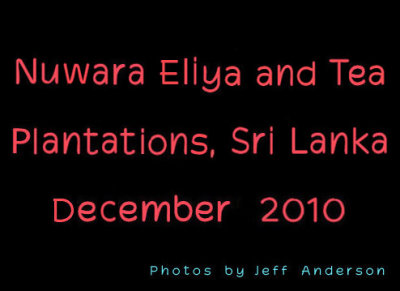
Nuwara Eliya and Tea Plantations cover page. |
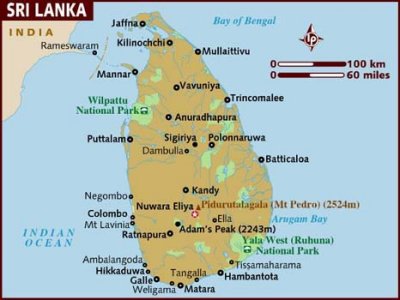
Map of Sri Lanka with the star indicating Nuwara Eliya. |
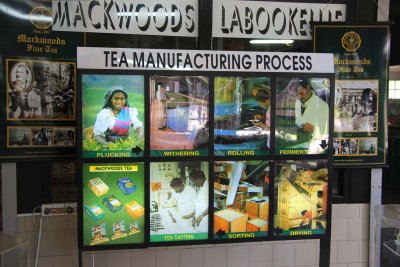
Nuwara Eliya is famous for its tea plantations. When there, I visited the Mackwoods Tea processing plant. |
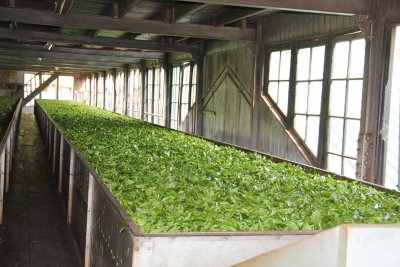
Tea leaves being processed. Established in 1841, Mackwoods Tea has a venerated name throughout the world. |
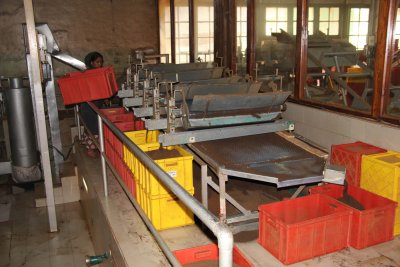
Machine in the Mackwoods Tea plant that processes the dried chopped tea leaves. |
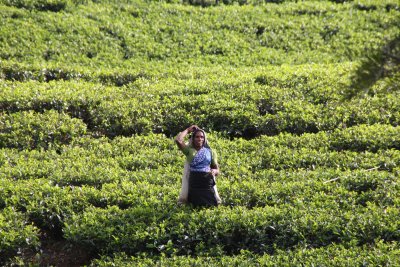
A woman working at a nearby tea plantation. Peasant laborers are used to harvest the tea leaves. |
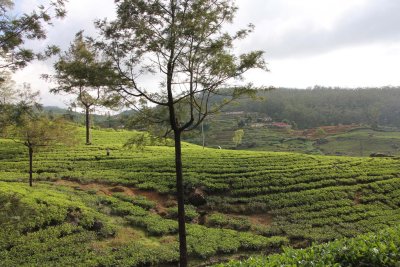
The slow-growing tea bushes of the highlands of Nuwara Eliya region produce some of the world's finest tea. |
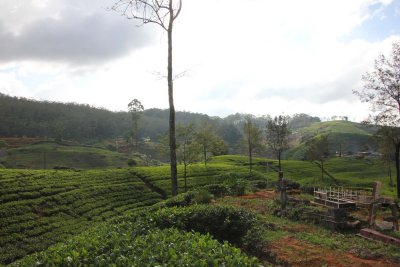
Tea from Sri Lanka is often referred to by the British colonial name, "Ceylon tea." |
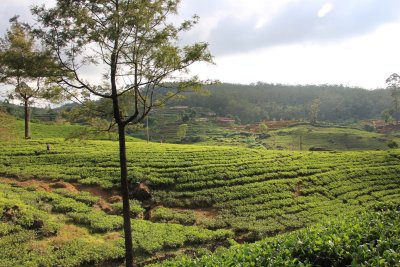
Tea plantations are abundant in this hilly region of Sri Lanka. |
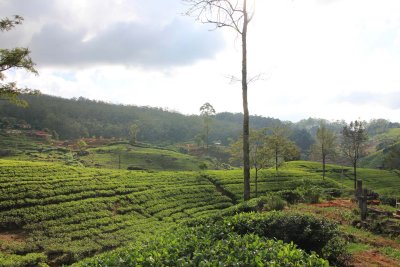
Several tea factories around Nuwara Eliya (such Mackwoods) offer tours and the opportunity to sample or purchase their products. |
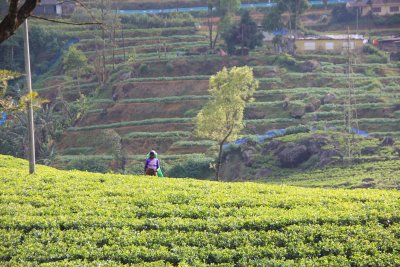
Another peasant women working the fields. |
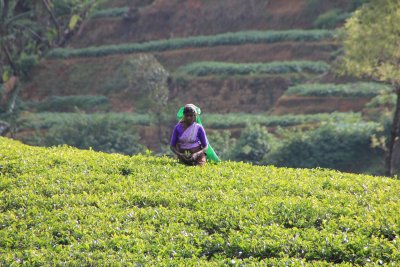
Close-up of the field hand. They often come from other countries to work in Sri Lanka. |
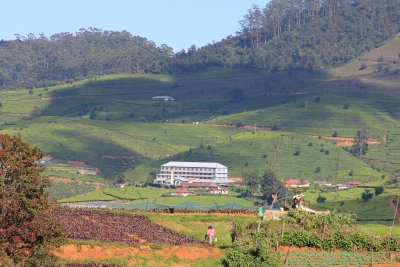
I stayed at the Tea Plantation Hotel in Nuwara Eliya. It was converted from a colonial-era tea factory. It was fabulous! |
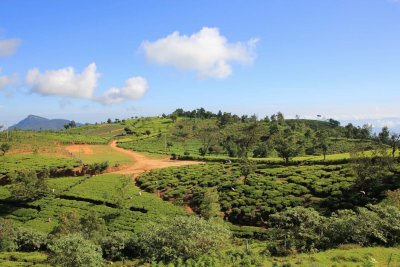
The countryside around the Tea Plantation Hotel was beautiful. |
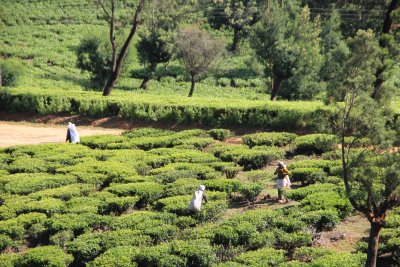
There were many field hands picking the tea leaves. |
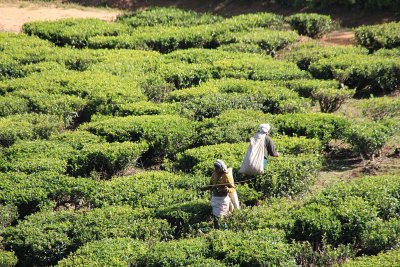
Close-up of two of them carrying their bundles of tea leaves behind them. |
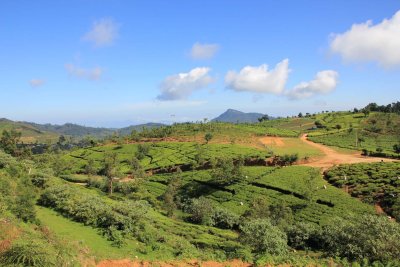
The Nuwara Eliya climate is also good for growing coffee, although tea is predominant there. |
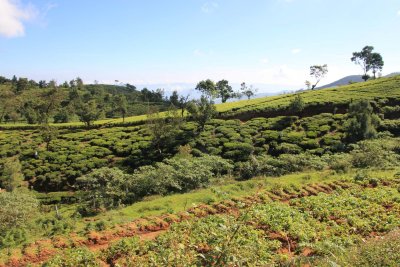
More scenic views of the tea fields. |
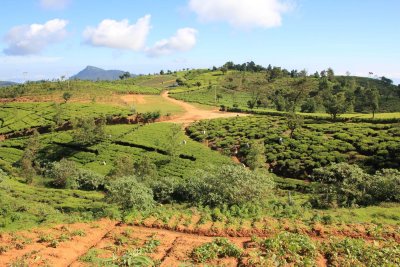
The fields are dotted with field hands. |
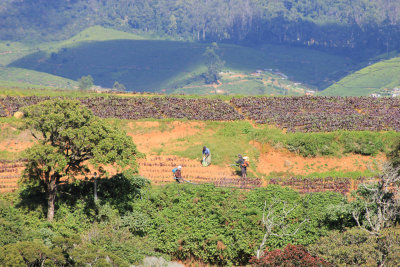
The labor is so difficult, that the local people would rather hire foreigners to do it for them. |
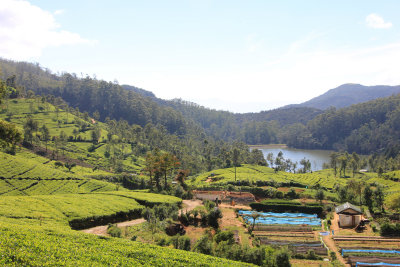
Bucolic view of tea plantations with a lake in the background. |
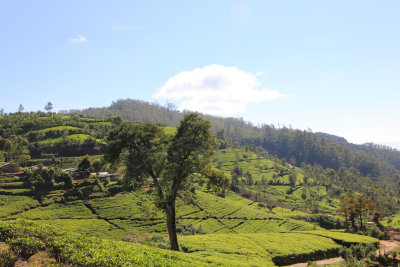
The highlands of Nuwara Eliya are lush and verdant. |
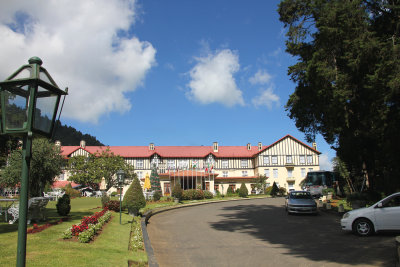
View of Nuwara Eliya's Grand Hotel, which is a 156 room British colonial-era luxury hotel that is over 100 years old. |
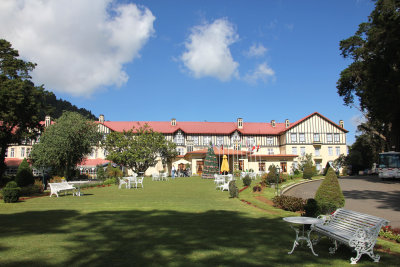
It was the former residence of Sir Edward Barnes, Governor of Ceylon from 1830 to 1850. |
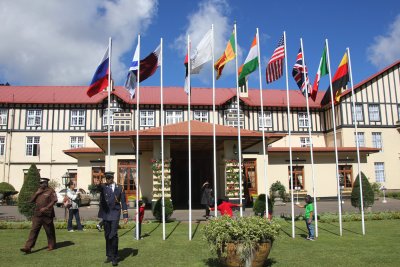
It is an excellent example of a Elizabethan era manor house. |
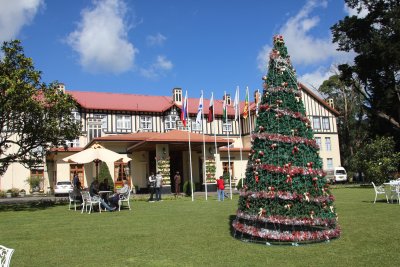
Even though it is not a Christian country, there was a Christmas tree at the Grand Hotel since it was December. |











